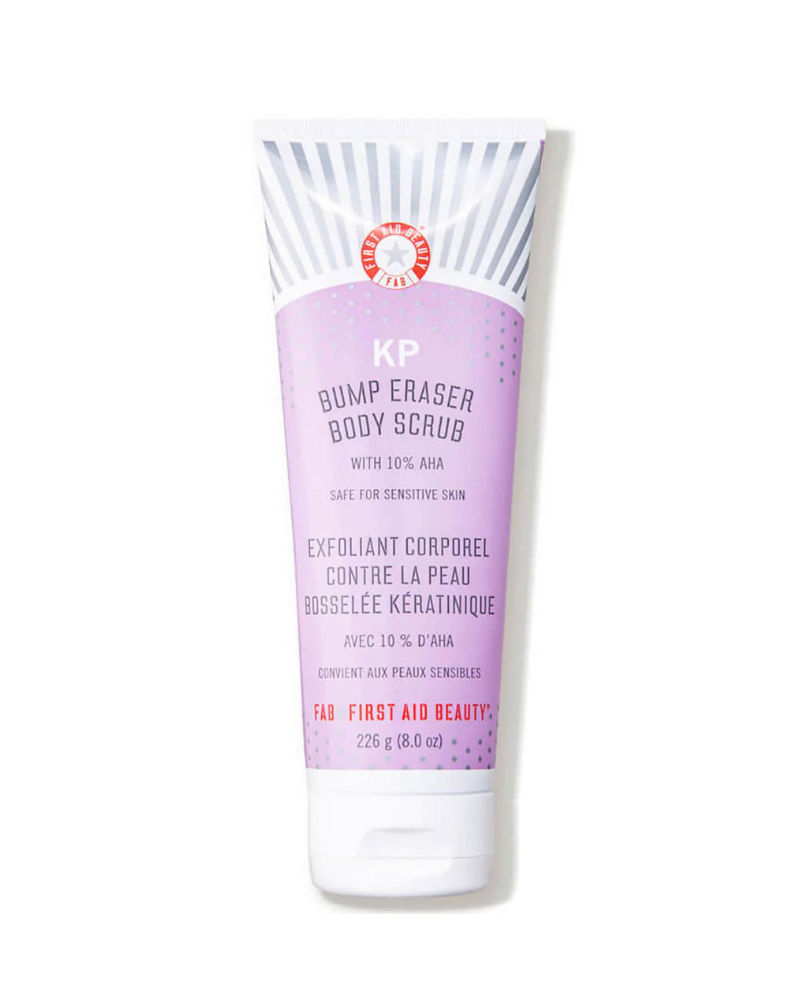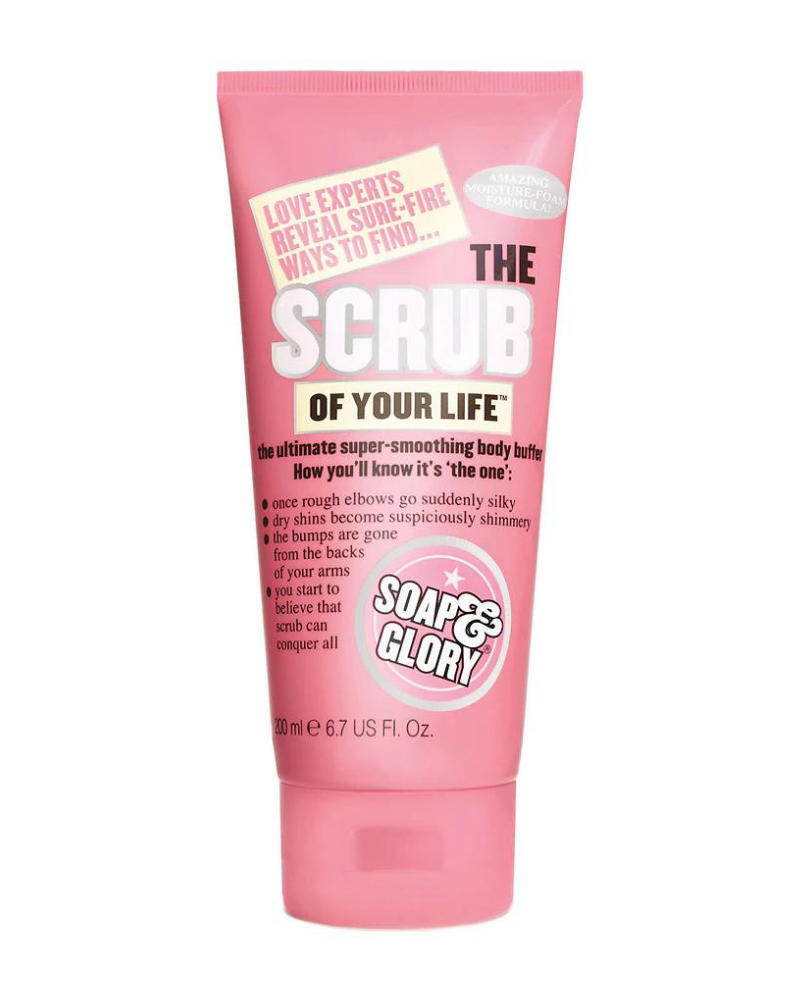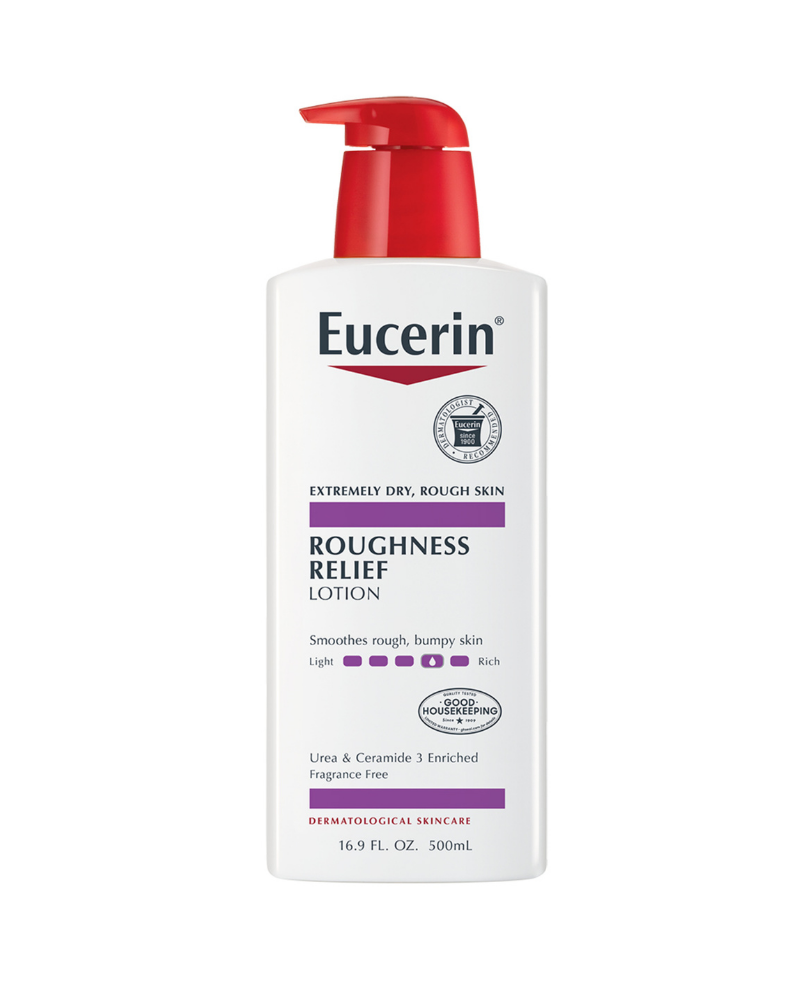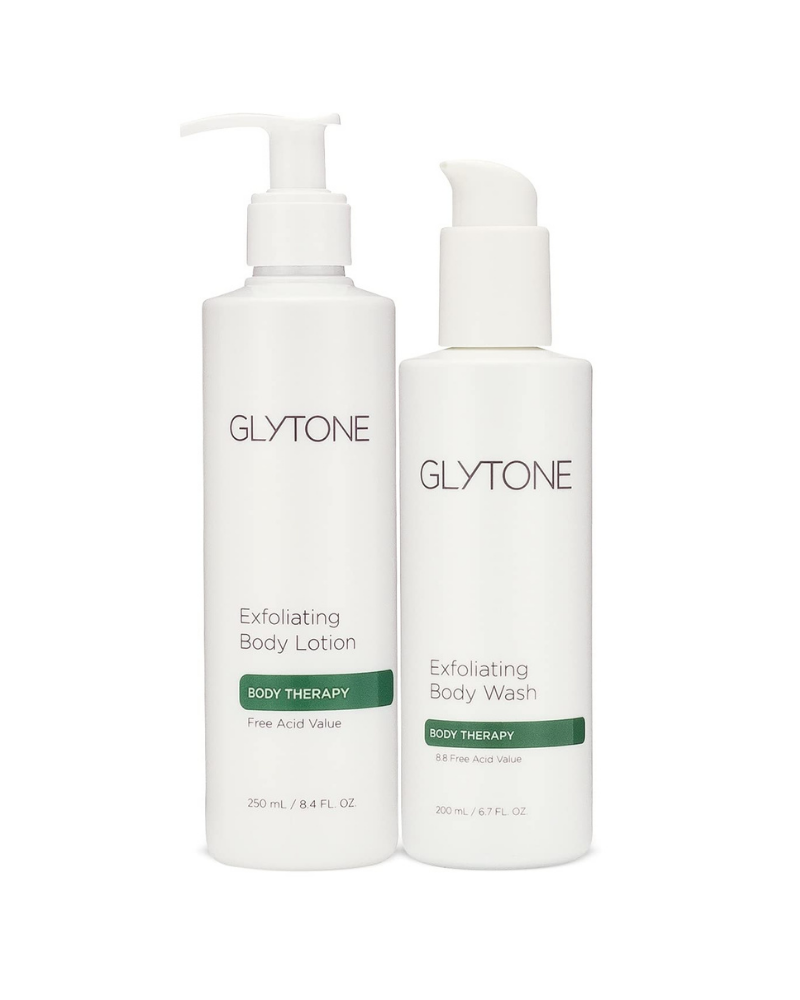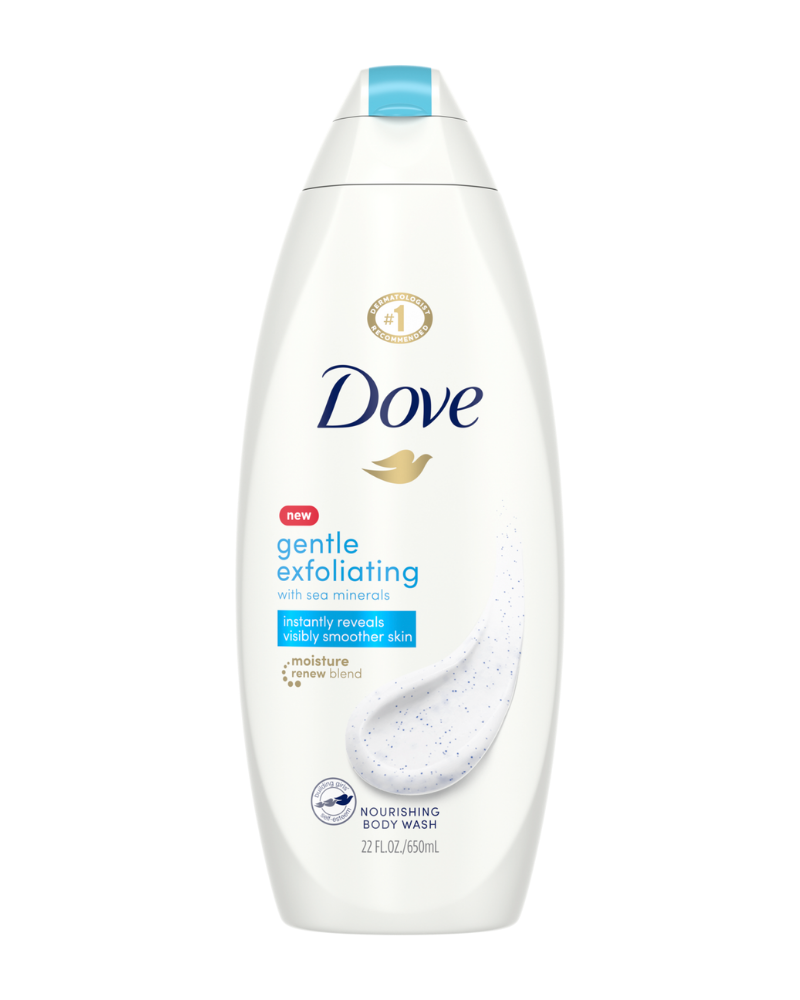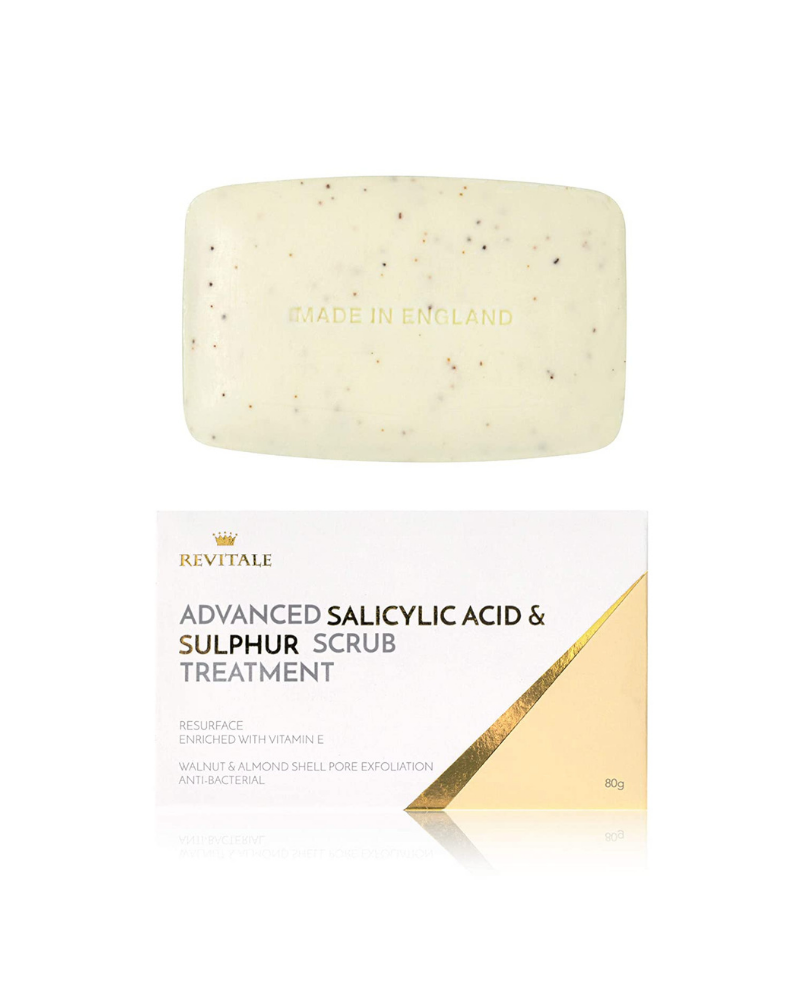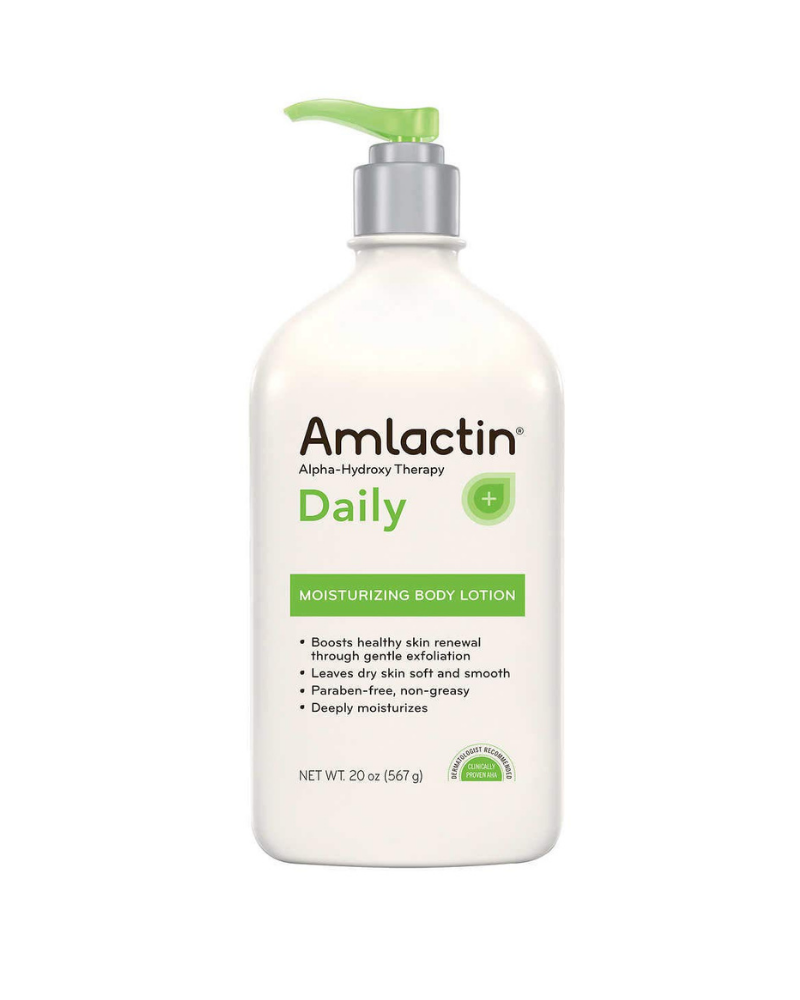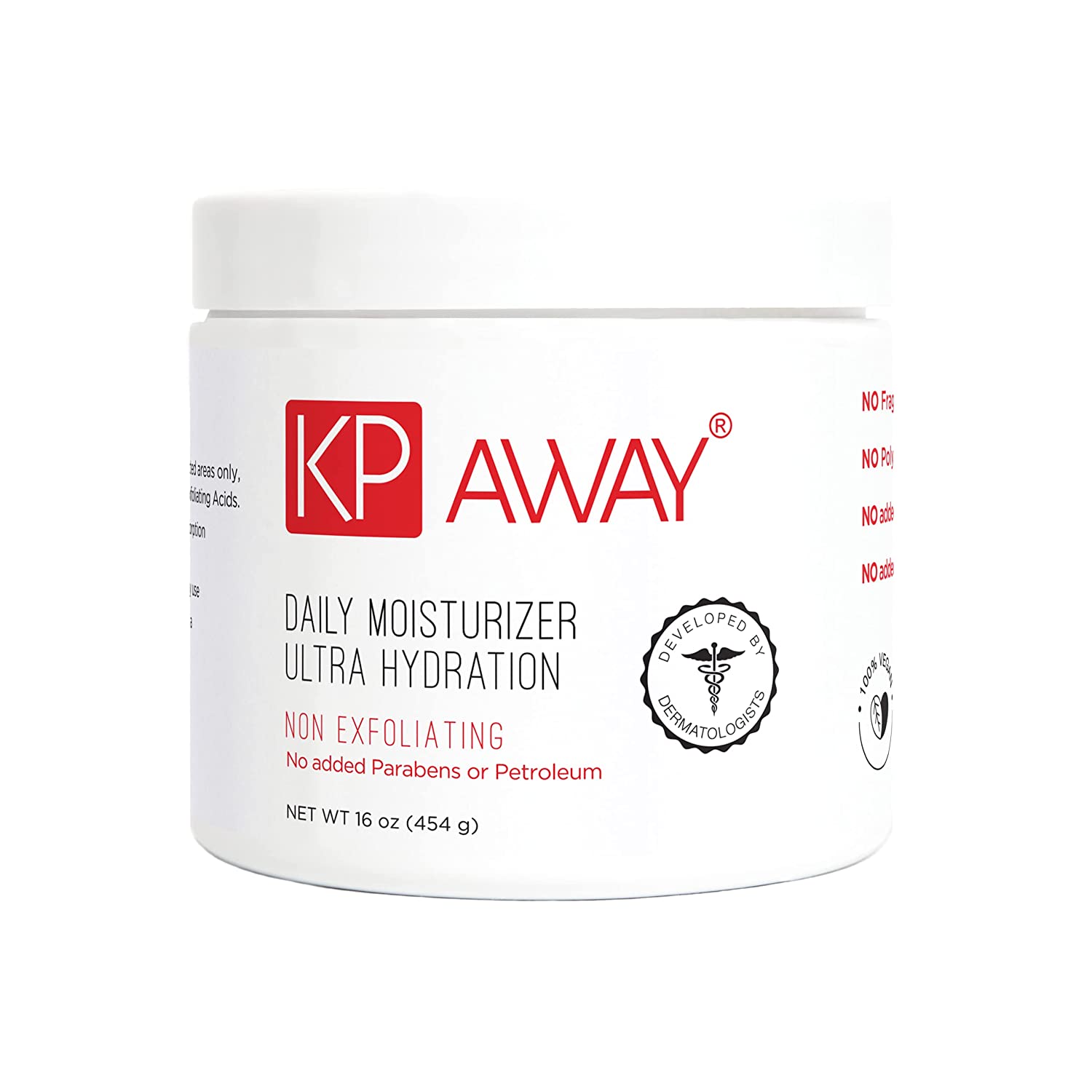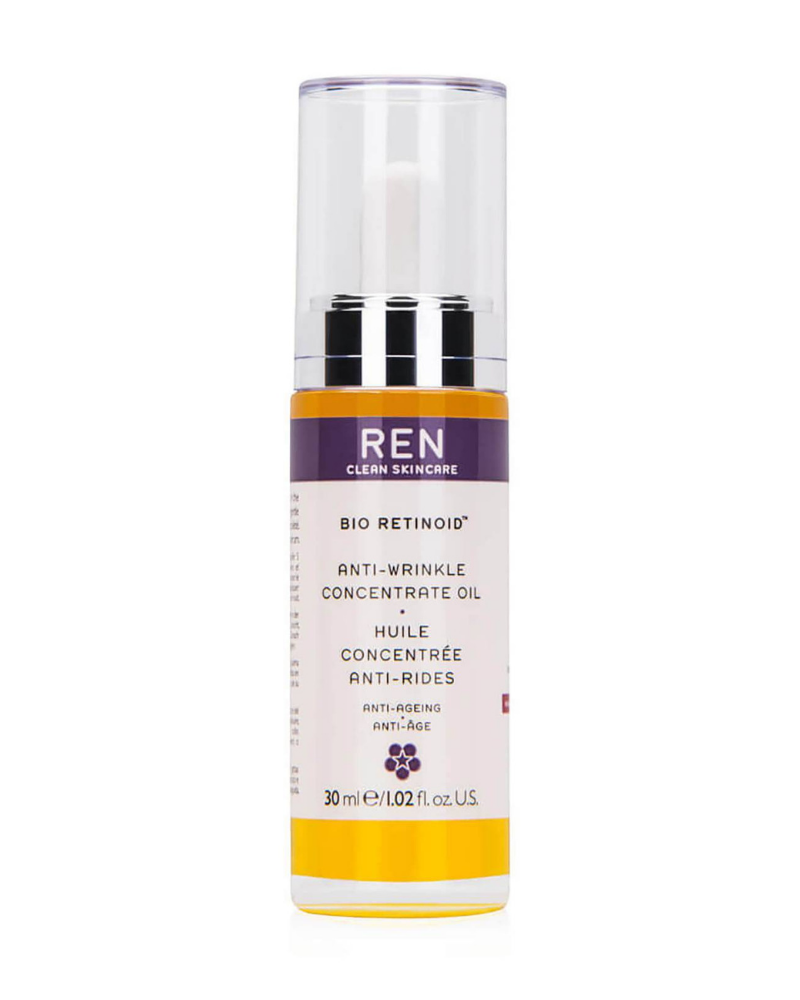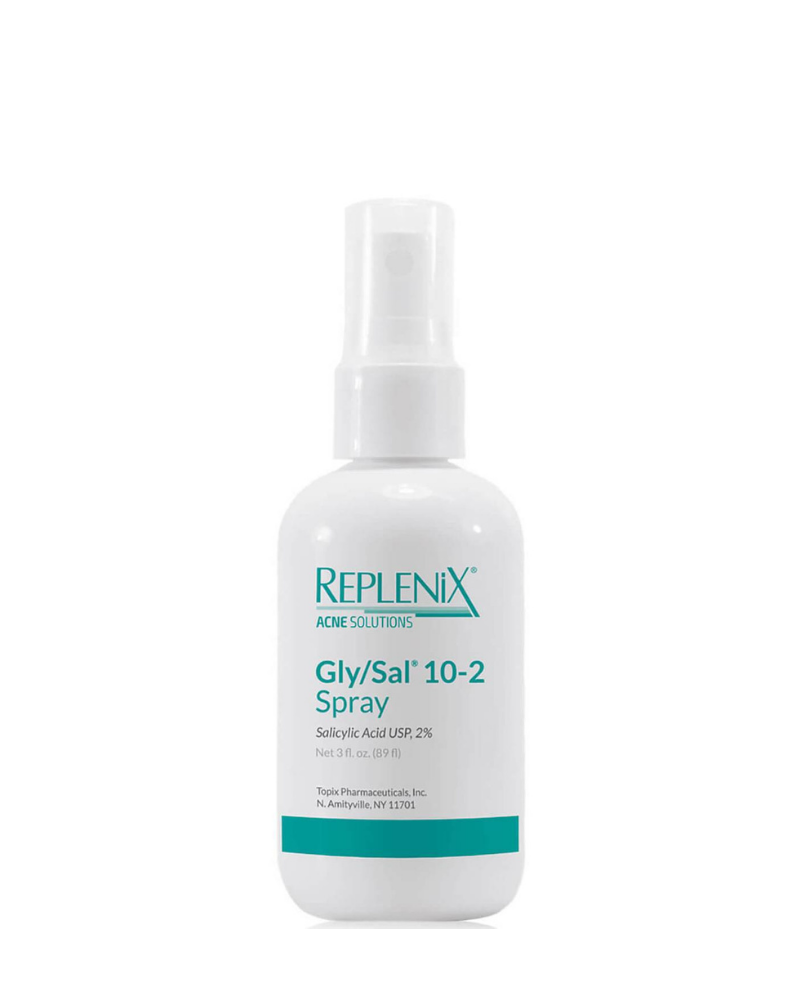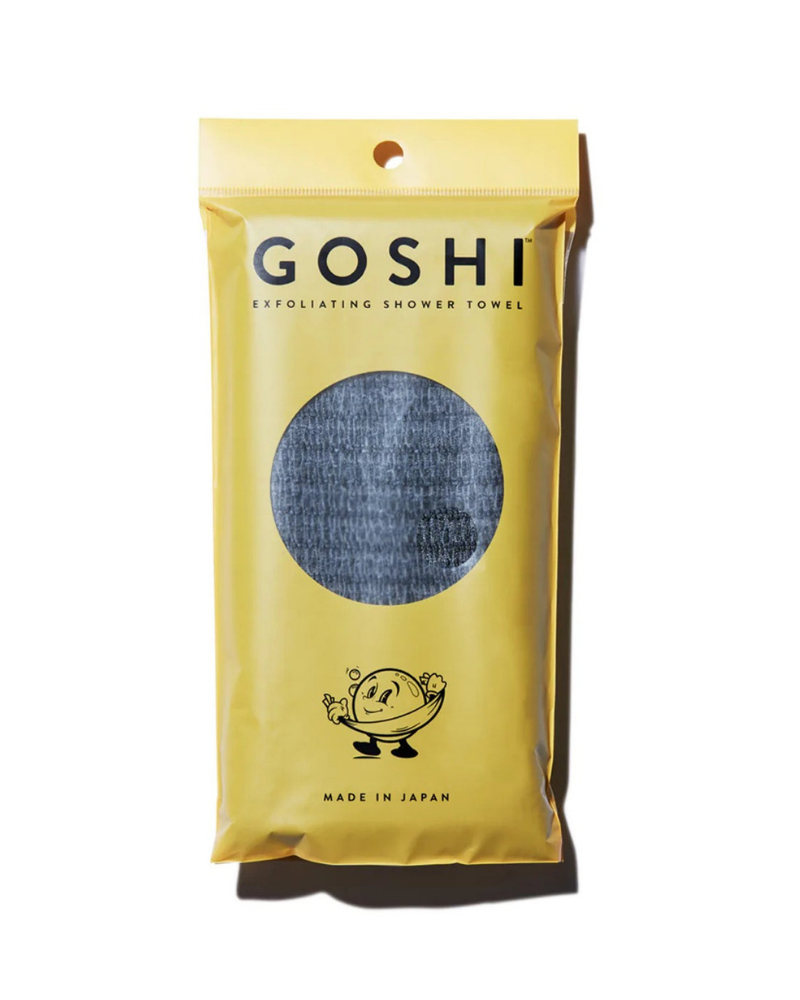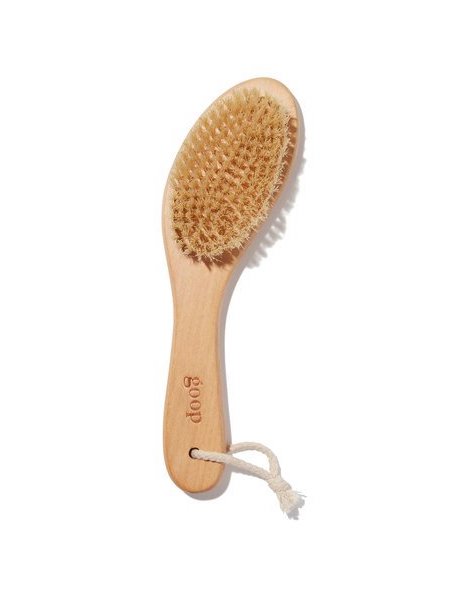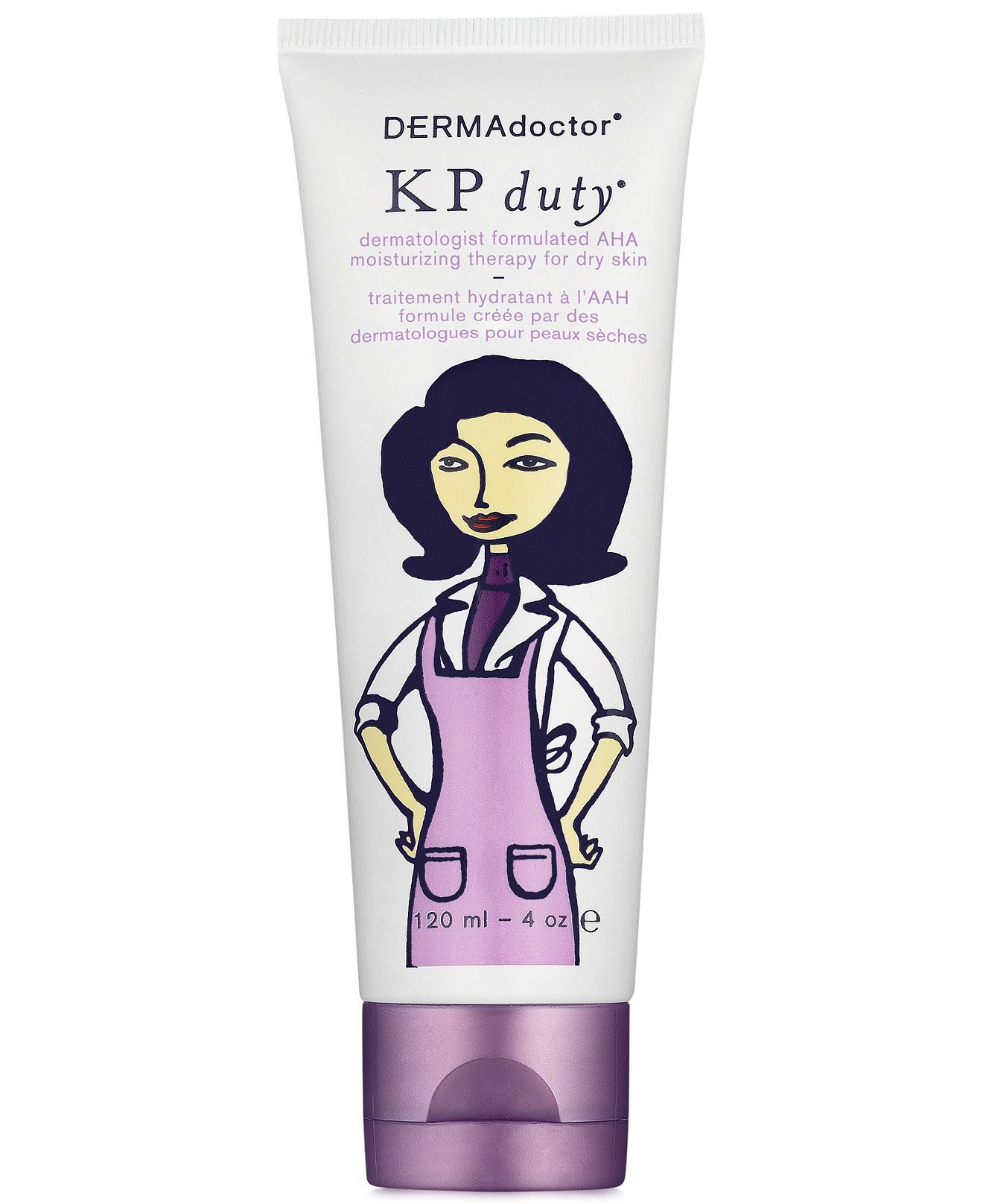12 Keratosis Pilaris Treatments That Really, Truly Work
Dermatologists explain what keratosis pilaris, a.k.a "KP," really is—and how to treat it.


I have had keratosis pilaris—i.e. the bumpy “chicken skin” most commonly found on the backs of your arms, cheeks, and thighs—my entire life. Even after doctors stated that I’d “grow out of it,” fast forward to a decade later, and I'm still dealing with it—red, blotchy skin and all. The internet may recommend DIY treatments like baking soda, lemon, or apple cider vinegar—which I promise you will truly ruin your skin—but despite all of the potions and prayers, I've never found one true illustrious solution. On the bright side, I have discovered a ton of really excellent treatments that have either completely cut the redness; smoothed the bumps; or done a bit of both.
What is keratosis pilaris?
“Keratosis pilaris is a common genetic skin condition that’s caused by a buildup of keratin in the hair follicle, forming rough, hard plugs that can look inflamed and red,” says Dr. Melissa Kanchanapoomi Levin, board-certified dermatologist and founder of Entière Dermatology.
How can I get rid of keratosis pilaris?
Despite the fact that KP occurs in about half of all adults, there’s still no one-size-fits-all treatment that works for everyone. And trust; I've tried every possible “cure” unlimited internet access could find. Even dermatologist Dr. Hadley King co-signs that: “There is no "cure" for this—KP is genetic and it will come back if you stop treating it. Gentle exfoliation, either physical or chemical, can temporarily improve the texture.”
Exfoliating Scrub With Glycolic and Lactic Acid
Don't you wish you could instantly erase KP once and for all? Well, look to exfoliating scrubs to wipe away those imperfections—obviously not instantly, but, with consistent use, rather quickly.
"An effective KP treatment option uses exfoliating ingredients such as glycolic and lactic acid—[both found in] the First Aid Beauty Body Scrub—but without being too irritating or drying. Calming ingredients like bisabolol and moisturizing ingredients like glycerin and dimethicone help relieve irritation, inflammation, and still provide moisture to the skin," says Dr. Levin.
Soap & Glory Body Scrub
For a while, whenever I talked to my sister on the phone, she'd start out with, "Have you tried it?" I'd roll my eyes, awaiting the dreaded yell when I told her I hadn't. My sister deemed this product the holy grail in getting rid of her KP; she'd ask my brother and me to feel how silky smooth her arms were at any family function. So I finally threw in the towel, ordered a bottle for myself, and purchased an exfoliating loofah to go along with it. My worst fears came true: my younger sister was right.
Since the product is a scrub, I only use it about two to three times per week. I found myself totally intoxicated with the smell of fresh bergamot, mandarin, rose, jasmine, peach, and strawberry. Post-shower, I dry off and apply Eucerin's Advanced Repair Lotion. After a couple of weeks (patience is a virtue, my friend), the back of my arms were visibly smoother. This product is now my holy grail.
Stay In The Know
Get exclusive access to fashion and beauty trends, hot-off-the-press celebrity news, and more.
Urea-Enriched Hydrating Lotion
Yes, this lotion deserves its own section. It sounds simple: Use an ultra-moisturizing body lotion to get rid of pesky dry and flaky skin. Eucerin isn't just a great treatment for KP—this lotion also works wonders on sandpaper elbows, eczema, inflamed skin, and other topical concerns, due to the hydrating glycerin and the shea butter that locks it in for ultimate moisture. “[It] effectively delivers 48 hours of hydration. It is also enriched with urea to gently chemically exfoliate, so it smooths and softens rough and bumpy skin,” says Dr. King.
Don't get discouraged if your KP doesn't disappear overnight. With consistent use of this emollient-rich hydrator, your skin will feel smoother while the product works on improving the bumpy appearance of KP over time.
Exfoliating Body Wash With Acids
Laura Dyer, certified physician's assistant with Dr. Amy Wechsler Dermatology, says: “Alpha and Beta Hydroxy acids are the best treatment for KP—look for products with salicylic, glycolic or lactic acid to help exfoliate and smooth the skin."
She adds: "This fragrance-free body wash and lotion duo also has an exfoliating pouf to add to the experience, if you have sensitive skin start by incorporating this set once a week then work your way up to using it two to three times a week—or as often as your skin can withstand.
Dove Gentle Body Wash for Sensitive Skin
Sensitive skin already has enough to deal with—but Dove, per usual, has a gentle option. Dermatologist Dr. Hadley King recommends this tried-and-true soap for sensitive or dry skin. “This creamy sulfate-free wash contains ingredients like lipids and glycerin that moisturize the skin and support the skin barrier, as well as sea minerals to gently physically exfoliate. The combination helps to gently smooth the skin without irritation," she says.
Sulfur Soap
What a sexy, sexy product, huh? Welp, what it lacks in bells-and-whistles packaging, it makes up for with a legit combo of ingredients: three-percent salicylic acid and 10-percent colloidal sulfur. “Topical sulfur is a known keratolytic agent, which means it breaks up the bonds in keratin plugs, helping shed them away,” says Dr. Levin. And, when combined with salicylic acid, another keratolytic ingredient with anti-inflammatory properties, you’ve got a gentle, yet really effective solution for KP (and also acne, which is an extra bonus).
Plus, if you do it the way I do, which is by rubbing the actual bar over my arms and thighs, you get the added perk of a gentle exfoliation, which can help loosen plugs without irritating them. Just be warned: This soap is unscented, so it will smell like sulfur in your shower for a few minutes. But thankfully, the smell dissipates from your skin as soon as you dry off. You can also try sulfur-infused face washes, though, in my experience, they’ve been too drying and irritating for my sensitive skin (yes, even my legs and arms), so I stick with the bar, instead.
Lactic Acid Body Lotion
There’s a reason why this is the cream you see over and over again in your search results for “how to fix keratosis pilaris”: It really works. But only if you use it consistently—like so, so consistently. I’ve thrown away and rebought this lotion a dozen times, always convinced it doesn’t work for me, and always convinced I should try it again.
So finally, last year, I made a promise to apply lactic acid lotion every single night for a month straight, without skipping a day, and what do you know? My KP decreased by a good 70 percent. Which shouldn’t have been that surprising, considering it’s filled with lactic acid (i.e. a sugar-derived alpha hydroxy acid, or AHA) that not only hardcore moisturizes skin, but also dissolves keratin bonds for way fewer bumps. You just need to stick with it—I took a weekend off and my KP came back 100 percent as if I had never applied it all. Yes, it’s slightly sticky, and it stings like hell for a minute if you have any open cuts, and it doesn’t smell great, but it really does work.
Emollient Cream
At the end of the day, emollients are the best way to cushion dry, KP-ridden skin, which is the idea behind this dermatologist-formulated brand. Made with a coconut oil base, this moisturizer can be used every day, and is even safe to apply on babies.
Retinol Oil
I actually hadn’t intended to use this one for my KP—I had a group of retinol oils (which are way more gentle and soothing than usual retinol treatments) sitting in my cabinet after testing them for a story, and, on a whim, started slathering them on my arms. If retinol is good for your wrinkles, dark spots, acne, and literally every other skin issue, it’s gotta be good for your keratosis pilaris, right? And, as it turns out, it was.
“Vitamin A derivatives such as retinols and retinoids speed up your skin cell turnover, which prevents buildup of skin cells and, in turn, keratin, in the first place,” says Dr. Levin. Technically, acids, like AHAs and BHAs, are still the quickest, most effective way of dealing with KP, but because everyone’s skin is different, they may not work for you at all, whereas retinol could be your game-changer.
For me, I noticed an all-over improvement in my arms and thighs after a few weeks of diligent, every-other-day use; both the bumps and redness had decreased, rather than a one-or-the-other situation I experienced with the lotion and soap. Annoyingly, though, it’s a rather expensive method, since retinol oils tend to be so pricey, so I haven’t really kept up with this method. However, if you don’t have especially sensitive skin, you could easily get a generic retinol cream, like my $20 Amazon favorite, which has more than 2,000 glowing reviews and would definitely get you similar results.
Medicated Spray for Body Acne
Medicated sprays for body acne are a favorite among MC editors for a few reasons. For starters, they're typically formulated with acid-based exfoliants, which won't bleach your clothes like some benzoyl peroxide-based treatments. Also, the application is easier for hard-to-reach places. If you can reach the entire surface of your back, congrats, but to save some arm cramps a spray works just as well.
I figured the same principles would apply for treating KP—and I was right. This rather intimidating-looking spray combines ten percent glycolic acid with two percent salicylic, for a non-irritating mist that gently sloughs away dead skin cells that cause build-up. It also dries down almost immediately, meaning you don't need to build any wait time into your AM or PM shower routines.
Exfoliating Tools
While this may seem like a rather obvious solution, it also may be one of the most effective. This exfoliating towel is woven from two different widths of recyclable nylon—a thinner lathering thread helps suds up any soap or gel, while a thicker width exfoliating thread works to loosen dead skin cells. The towels are said to last three to six months; testers have had theirs up to a year and say they are still going strong. (With nary a white bump in sight.)
How long will it take to see results?
As with anything, the right treatment for your keratosis pilaris may invlolve your trying out different products. Taylor Worden, celebrity esthetician and founder of Taylor Worden Skin, says: “Everybody is different, but I would give it 8-12 weeks to fully see the results with products.”
If you’re not into physical exfoliants, a dry brush is a simple alternative that not only exfoliates but also invigorates pores. Remember, this brush is meant to be used dry, so if you do have a pension for a steamy shower, Worden recommends staying away.
In Conclusion...
That’s it. Yup, a lifetime of KP-cure testing, and only a select few products have been deemed worthy. Of course, your mileage may vary, and maybe a cult-favorite cream like DermaDoctor’s KP Duty Lotion will work for you (for a friend, the combination of glycolic acid and urea made her skin itch, and it was too expensive to keep re-buying every four weeks).
Regardless of what you end up trying, though, make sure you use in conjunction with sunscreen, as all acids make your skin sensitive to the light, which can cause intense burning and skin damage. But other than that, please, for the love of your sanity, get slathering.

Chloe Metzger is the deputy beauty director at Cosmopolitan, overseeing the editorial content and growth strategy of the hair, makeup, and skin space on digital, while also obsessively writing about the best hair products for every hair type (curly girl here; whattup), and the skincare routines that really, truly work (follow her on Instagram to see behind-the-scenes pics of that magazine life). She brings nearly a decade of writing and editing expertise, and her work has appeared in Allure, Health, Fitness, Marie Claire, StyleCaster, and Parents. She also has an unhealthy adoration for Tom Hanks and would like to please meet him one day, if you could arrange that. Thanks.
-
 The "Frightening" Easter Prank William Played on Eugenie
The "Frightening" Easter Prank William Played on Eugenie"Prince William has just stood on a chair and bitten the mouse's head off."
By Amy Mackelden
-
 A Resurfaced Photo Reveals Charlotte's Royal Lookalike
A Resurfaced Photo Reveals Charlotte's Royal Lookalike"The Spencer genes are so strong."
By Amy Mackelden
-
 Why Prince Andrew Attended Royal Family's Easter Service
Why Prince Andrew Attended Royal Family's Easter ServiceIt was previously alleged King Charles's "patience was wearing thin" with his brother.
By Amy Mackelden
-
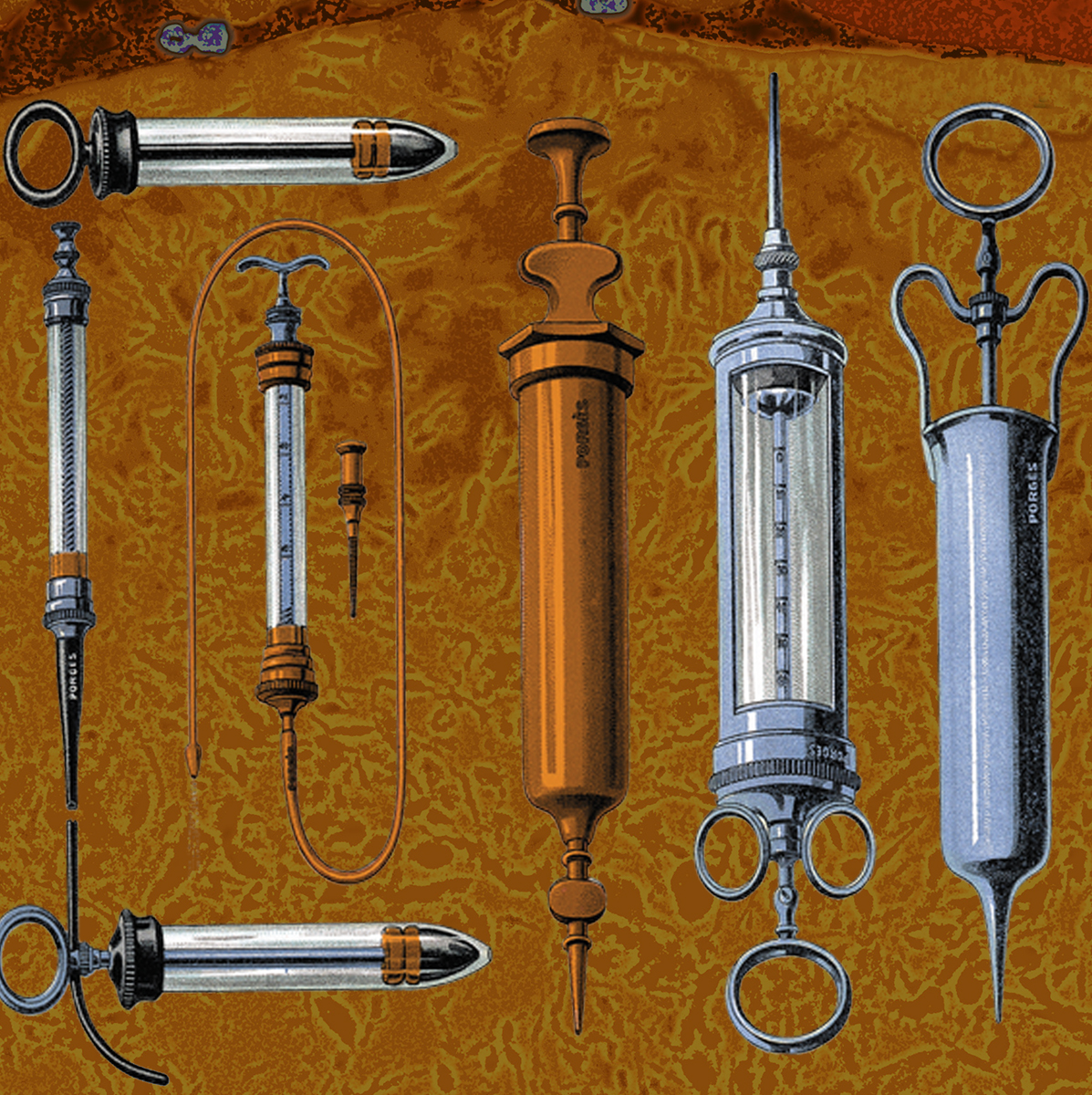 Here's the Skinny on Fat Grafting Skincare Treatments
Here's the Skinny on Fat Grafting Skincare TreatmentsHere's the skinny on the cosmetic treatment taking over plastic surgeons' offices from coast-to-coast.
By Fiorella Valdesolo
-
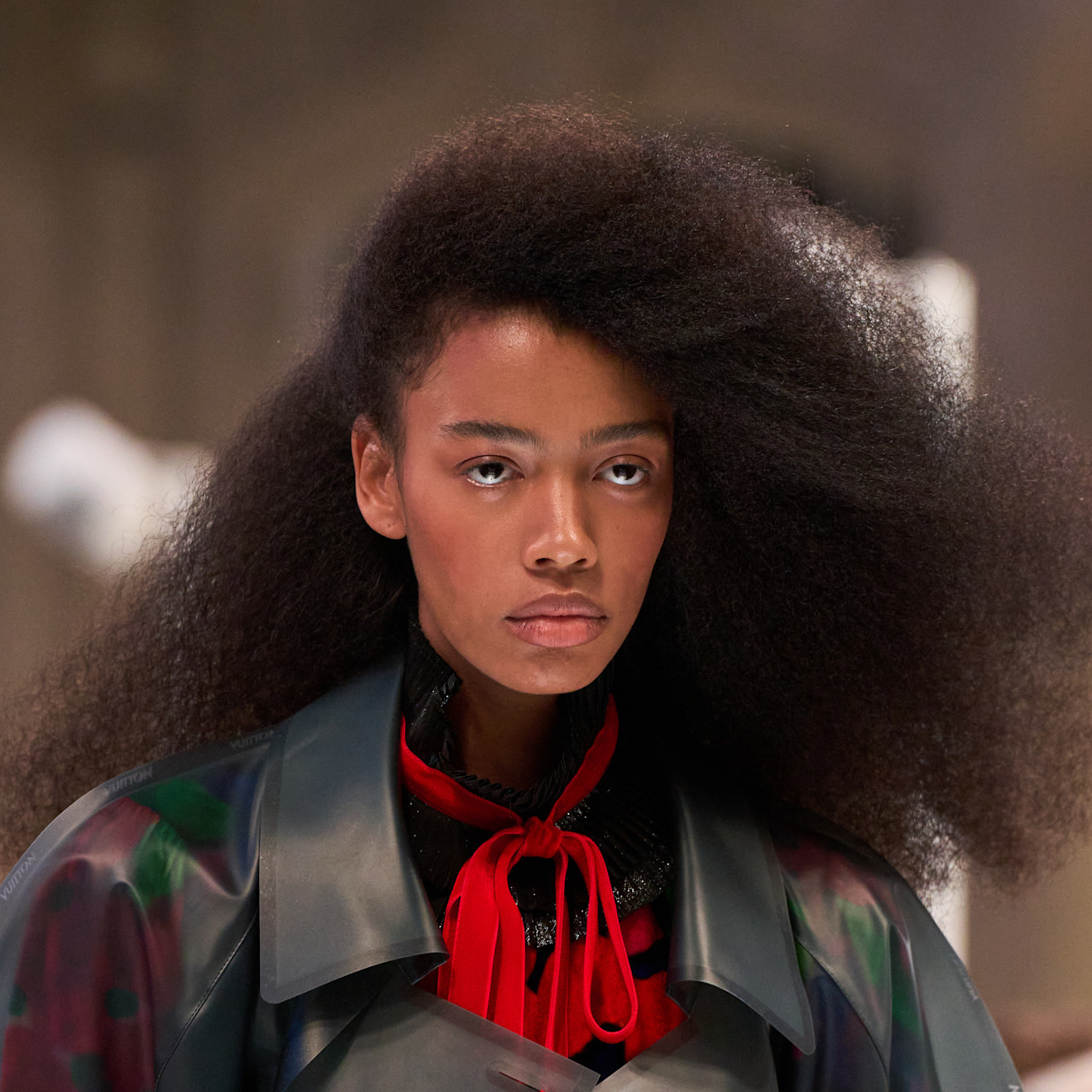 Everything You Need to Know About Marie Claire’s Skin and Hair Awards
Everything You Need to Know About Marie Claire’s Skin and Hair AwardsCould your brand survive an editor testing session?
By Ariel Baker
-
 People Always Compliment My Flawless Skin—These 6 Steps Are Why
People Always Compliment My Flawless Skin—These 6 Steps Are WhyFrom sunscreen and essences to moisturizers, it's all here.
By Hannah Baxter
-
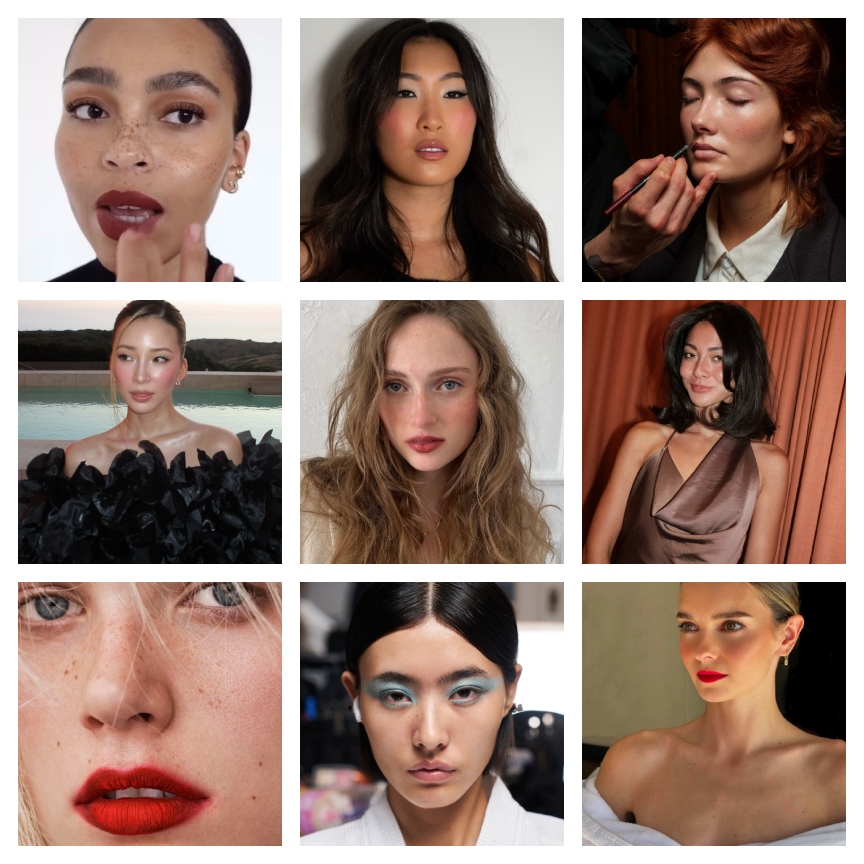 The 11 Best Spring Makeup Trends Are Sexy, Sensual, and Perfectly Luminous
The 11 Best Spring Makeup Trends Are Sexy, Sensual, and Perfectly LuminousIt's dew or die time.
By Jamie Wilson
-
 Simone Ashley’s Indie Sleaze Glam Is a Cool-Toned Dream
Simone Ashley’s Indie Sleaze Glam Is a Cool-Toned DreamThe actor was spotted in New York City looking like the epitome of cool-toned beauty.
By Ariel Baker
-
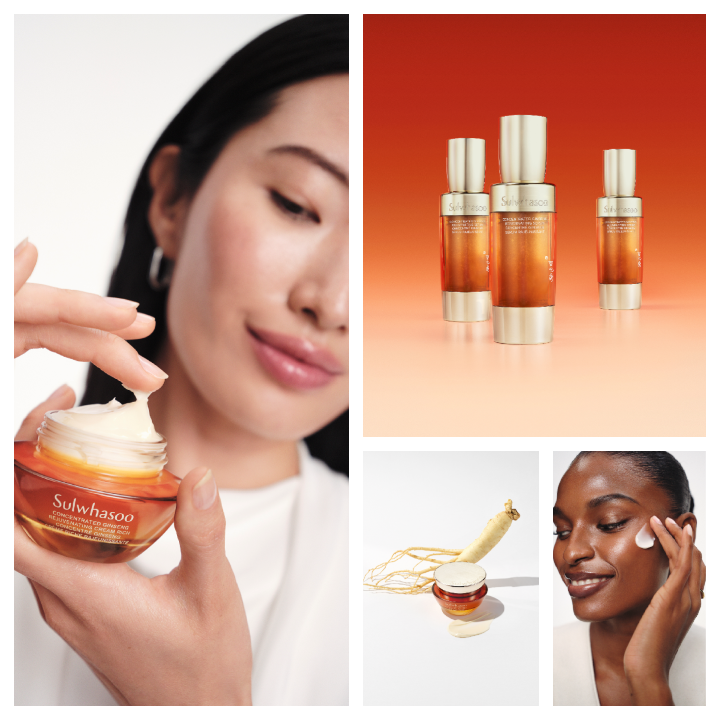 Sulwhasoo’s New Concentrated Ginseng Cream Is a Wrinkle-Erasing Time Machine for My Skin
Sulwhasoo’s New Concentrated Ginseng Cream Is a Wrinkle-Erasing Time Machine for My SkinThis Seoul-based brand is the key to plump skin.
By Samantha Holender
-
 The 10 Best Hair Growth Shampoos of 2025, Tested by Editors
The 10 Best Hair Growth Shampoos of 2025, Tested by EditorsExpensive and healthy-looking hair on lock.
By Marisa Petrarca
-
 New York Fashion Week’s Fall/Winter 2025 Best Beauty Moments Are a Lesson in Juxtaposition
New York Fashion Week’s Fall/Winter 2025 Best Beauty Moments Are a Lesson in JuxtapositionThe week's best beauty looks were a maximalism master class.
By Ariel Baker
